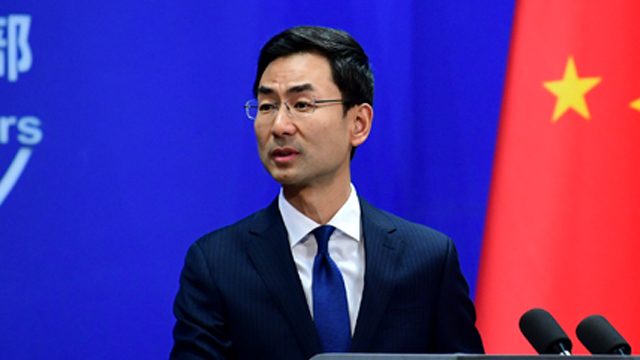SUMMARY
This is AI generated summarization, which may have errors. For context, always refer to the full article.

MANILA, Philippines – China on Wednesday, August 21, asked the Philippines to ban all forms of online gambling as it lauded the Philippine Amusement Gaming Corporation’s (Pagcor) recent move to suspend accepting applications for Philippine offshore gaming operations (POGO).
In a statement sent to reporters on Wednesday, Chinese Foreign Ministry Spokesperson Geng Shuang said it noted and “appreciated” Pagcor’s announcement to suspend accepting POGO license application until concerns of all parties were “comfortably addressed.”
“We hope the Philippines will go further and ban all online gambling,” Geng said.
China added it hoped the Manila and Beijing could “jointly tackle criminal activities including online gambling and cyber fraud,” saying it would aid in the development of relations between the two countries.
China issued the statement after another Southeast Asian country, Cambodia, decided to ban online gaming over its “threats” to social order. China is a close ally of Cambodia and is among its biggest investors.
Like the Philippines, Cambodia has become a hub for online gambling with Chinese-run casinos often setting up such operations. Gambling is outlawed in China and is heavily opposed by the communist government. To skirt this obstacle, gambling companies set up operations overseas. (READ: How China’s online gambling addiction is reshaping Manila)
“As is well known, online gambling is a most dangerous tumor in modern society detested by people all across the world. It is a shared hope that the problem could be effectively dealt with,” Geng said.
China’s remarks likewise come after Philippine security officials expressed concern over the proximity of POGO hubs built near military and police camps and the influx of Chinese nationals working illegally in the Philippines. (READ: China slams Pagcor proposal to place Chinese workers in ‘hubs’)
Asked if the Philippine would follow Cambodia’s move to ban online gambling, Defense Secretary Delfin Lorenzana said he would bring it up with Cabinet’s economic cluster.
“I am going to discuss that with the cluster, and maybe discuss it with the Pagcor, with the economic cluster, because the POGO operations is bringing us substantial amount of money. Are we willing to lose those POGOs? Depende (It depends). We will explore and study some more before we can make the recommendation,” Lorenzana told reporters on Tuesday, August 20.
With China’s request, it remained to be seen how the Philippines would respond. Despite a strongly-worded statement earlier issued by China over its problems with online gambling, the industry has proven to be a substantial source of revenue for the Philippines.
POGOs paid P579 million in taxes in 2018, voluntarily paid P789 million in the 1st half of 2019, and owe the government over P4 billion in unpaid taxes. – Rappler.com
Add a comment
How does this make you feel?
There are no comments yet. Add your comment to start the conversation.